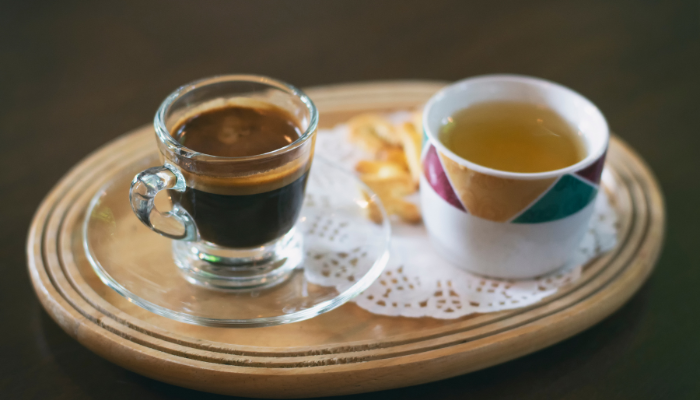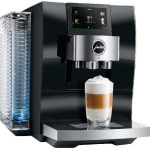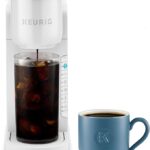
Out in the whole wide world, espresso and coffee are two of the most popular beverages. But can you really get to know what makes them different? And which goes to be stronger in terms of caffeine, flavor, and concentration?
So, we set to compare and contrast espresso and coffee with each other and reveal the truth behind this common myth.
Is espresso stronger than coffee? Well, you might be surprised by what you will learn down the road!
Caffeine Content
The first and most common way of measuring the strength of a beverage is by detecting its caffeine content.
Note that, caffeine is a stimulant that gives you a boost of energy and alertness when you drink coffee. But how much caffeine does espresso have compared to coffee?
Well, it greatly depends on how you look at the whole of it. If you occur to compare both by volume, espresso will contain a larger amount of caffeine per ounce than coffee. A single shot of espresso (1 oz) has about 64 mg of caffeine, whereas a cup of coffee (8 oz) has about 95 mg. That literally means espresso contains over 8 times more caffeine per ounce than coffee.
But when you compare them by their serving size, coffee will ultimately come with more caffeine per serving than espresso. A typical serving of espresso will be between one or two shots (or 1~2 oz) containing about 64~128 mg of caffeine. And, when it comes to roughly calculating the caffeine amount in coffee, a typical serving of coffee is one cup (8 oz), which will have over 95~128 mg of caffeine. That means coffee has about the same or more caffeine per serving than espresso.
So, if you want to get more bang for your buck, coffee will be the nicest option. But if you want to get more buzz in a smaller sip, espresso will definitely suit you.
Flavor and Concentration
And the next measuring method for sensing the strength of both beverages would be by detecting their flavor and concentration. The flavor is the subjective perception of how something tastes, while concentration is the objective ratio of dissolved solids to water in a solution.
Espresso seems more concentrated than coffee, which clearly means it has more dissolved solids (such as oils, sugars, and acids) per unit of water. So, that results to form a richer, thicker, and creamier beverage that has a more intense flavor and aroma. Espresso also contains a layer of crema on top, resulting in a golden-brown foam that adds sweetness and complexity to the drink.
Whereas, coffee is less concentrated than espresso having fewer dissolved solids per unit of water. Thus, that will clearly result in a thinner, lighter, and smoother beverage that has a more balanced flavor and aroma. And that is the reason, coffee does not hold any crema on top. This is why people do not like to drink it (coffee) often because of its less visual appeal and less flavorful.
Wanting to enjoy a more flavorful and concentrated beverage? Then go for espresso. But if you want to sip a more balanced and smooth beverage, you should go for coffee.
To add some flavor to the strong and tasteless coffee, then you are free to add some cream and sugar to your cup and call it a day went all good!
Brewing Method
Here we go with our last method — and with that, you can finely measure the strength of a beverage is by its brewing method. Whichever brewing method you pick, the process revolves around extracting flavor and aroma from ground coffee beans using hot water and pressure.
Espresso is commonly brewed using an espresso machine, which applies high pressure (9~10 bars) to force hot water through finely-ground coffee beans that are tightly packed into a small puck. This exact process will take no less than a minute but will only produce a small amount (1~2 oz) of highly concentrated liquid.
On the other hand, brewing the coffee may not going to be a simple task. You can, however, pick through various brewing methods, such as drip, pour-over, French press, or cold brew. But whichever method you pick, they would stay proceed with the same; using low pressure (1 bar or less) to pull or steep hot water through coarsely-ground coffee beans that are loosely packed into a large filter or container. And all of the processes will take several minutes to complete while producing a large amount (8~12 oz) of moderately concentrated liquid in one go.
So, if you want to experience a more technical and fast brewing method, you should go for espresso rather than coffee. But if you want to experience a more simple and slow brewing method, you should go for coffee rather than espresso.
Or maybe you can just buy some instant coffee and save yourself some time and hassle.
Conclusion
So, is espresso stronger than coffee? And, the answer is: it depends on how you define strength.
If you decide to define strength by caffeine content per ounce, then yes, espresso is stronger than coffee.
And, if you seem to be defining the strength via caffeine content per serving, then no, coffee is way stronger than espresso. Or, if you define strength by flavor and concentration, then yes, espresso seems much stronger than coffee. And, with defining the strength by brewing method, then no, you will find coffee to be stronger than espresso.
Ultimately, the choice between espresso and coffee comes down to personal preference and taste. There is no right or wrong answer when it comes to enjoying your favorite caffeinated beverage.
So, the best way to find out which one suits your taste-buds better is to try them both and see for yourself! Or maybe you should just drink some water and stay hydrated. 🙂
Jura Espresso Machines are the most durable and efficient coffee machines, suitable for home and professional usage. Read our reviews of Jura E8, Jura Impressa Z6, Jura S8 and Jura Z10 that will help you in selecting the Jura that meets your requirements.








No comments yet.